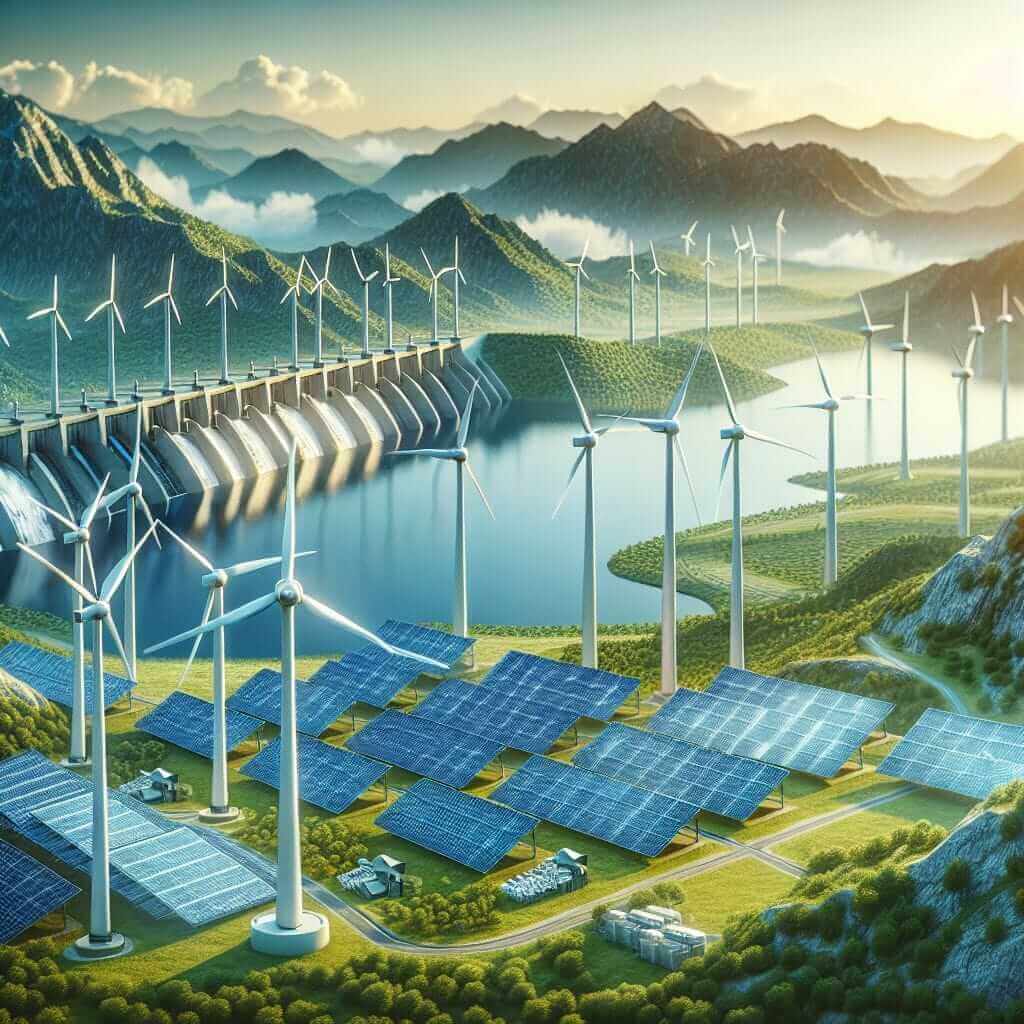In the IELTS Reading section, examinees often encounter a variety of topics, including those related to energy, technology, and environmental science. One pertinent topic that has been increasingly popular is the impact of renewable energy on energy independence. This guide will delve into this subject, providing you with a realistic IELTS Reading practice test, detailed questions, answers, and useful vocabulary and grammar tips. Given the relevance of this topic to current global discussions, it’s plausible that it might recur in future exams.
Practice Reading Passage: Effects of Renewable Energy on Energy Independence
TEXT
Renewable energy sources, such as wind, solar, and hydroelectric power, are becoming increasingly crucial in addressing global energy needs and reducing dependence on fossil fuels. These sources of energy offer numerous benefits, including the potential to achieve greater energy independence for countries around the world.
Energy Independence and National Security
One of the primary advantages of renewable energy is its contribution to energy independence. Countries reliant on imported fossil fuels are often subject to the volatility of international markets and the political instability of supplier nations. By investing in renewable energy infrastructure, nations can produce their own energy, thus reducing their dependence on foreign oil and gas. This shift not only enhances national security but also stabilizes energy prices and contributes to economic growth.
Economic and Environmental Benefits
In addition to improving energy security, renewable energy sources offer significant economic and environmental benefits. The transition to renewable energy creates jobs in manufacturing, installation, and maintenance of new energy systems. Moreover, by reducing greenhouse gas emissions, renewable energy helps mitigate climate change and reduce the health impacts associated with air pollution.

Technological Advancements
Technological innovations have further bolstered the effectiveness and efficiency of renewable energy systems. Advances in energy storage, such as batteries and smart grid technologies, have addressed some of the limitations associated with renewable energy, such as intermittency. These advancements enable a more reliable and resilient energy supply.
Challenges and Future Outlook
Despite the numerous benefits, the transition to renewable energy is not without challenges. The initial investment required for renewable energy infrastructure can be substantial, and the integration of these new technologies into existing energy grids can be complex. However, with continued research, development, and supportive government policies, the future outlook for renewable energy remains promising. As nations strive to meet climate goals and achieve greater energy independence, the role of renewable energy is poised to expand significantly.
Questions
Multiple Choice Questions
-
According to the passage, what is a major advantage of renewable energy?
- A. It is cheaper than fossil fuels.
- B. It enhances national security.
- C. It is easier to produce than fossil fuels.
- D. It requires less technological advancement.
-
What is one economic benefit of renewable energy mentioned in the passage?
- A. Decreasing the price of fossil fuels.
- B. Creating jobs in the renewable energy sector.
- C. Reducing government expenditure.
- D. Enhancing international trade.
True/False/Not Given
-
The passage suggests that renewable energy completely eliminates the need for fossil fuels.
- True
- False
- Not Given
-
Technological advancements have made renewable energy completely reliable.
- True
- False
- Not Given
Matching Information
Match the following statements with the corresponding sections (A-D) of the text:
-
Discusses the role of government policies in promoting renewable energy.
-
Highlights the improvements in energy storage technologies.
-
Addresses the economic implications of transitioning to renewable energy.
Sentence Completion
Complete the following sentences using no more than three words from the passage:
-
Renewable energy can help reduce the ___ associated with air pollution.
-
The volatility of international energy markets impacts countries that are ___ on fossil fuels.
Answers
Multiple Choice Questions
- B. It enhances national security.
- B. Creating jobs in the renewable energy sector.
True/False/Not Given
- False
- False
Matching Information
- D. Challenges and Future Outlook
- C. Technological Advancements
- B. Economic and Environmental Benefits
Sentence Completion
- health impacts
- reliant
Common Mistakes
-
Misinterpreting Yes/No/Not Given and True/False/Not Given Questions: It is crucial to distinguish between these types. Yes/No/Not Given requires the reader to discern the author’s perspective, while True/False/Not Given is based on factual accuracy.
-
Overlooking Synonyms: Many test-takers fail to recognize synonyms or paraphrased ideas, leading to incorrect answers. For instance, “health impacts” and “health effects” can be used interchangeably but might be missed.
Vocabulary
-
Infrastructure (noun) /ˈɪnfrəˌstrʌktʃər/
- Definition: The basic physical and organizational structures and facilities needed for the operation of a society or enterprise.
- Example: Investing in renewable energy infrastructure can promote economic growth.
-
Intermittency (noun) /ˌɪntərˈmɪtnsi/
- Definition: Occasional or irregular intervals.
- Example: Technological solutions are addressing the intermittency of renewable energy sources.
Grammar Focus
Complex Sentences with Relative Clauses
- Relative clauses add essential information to a sentence without requiring additional sentences. They often begin with relative pronouns like who, which, or that.
- Example: “Countries that rely on imported fossil fuels are subject to market volatility.”
- Usage Tip: Ensure the clause is correctly punctuated and relevant to provide the necessary context.
Tips for Reading Success
- Skim and Scan: Quickly skim the passage for the main ideas before diving into the questions. This helps establish a general understanding.
- Highlight Keywords: Pay attention to keywords and phrases in the questions, and locate them within the passage.
- Time Management: Allocate your time wisely. Spend more time on sections that you find challenging.
- Practice Regularly: Include a variety of topics in your practice to enhance your adaptability to different types of reading passages.
By understanding how renewable energy impacts energy independence, you are not only preparing for potential IELTS topics but also gaining valuable knowledge about a significant global issue. Good luck with your IELTS preparation!